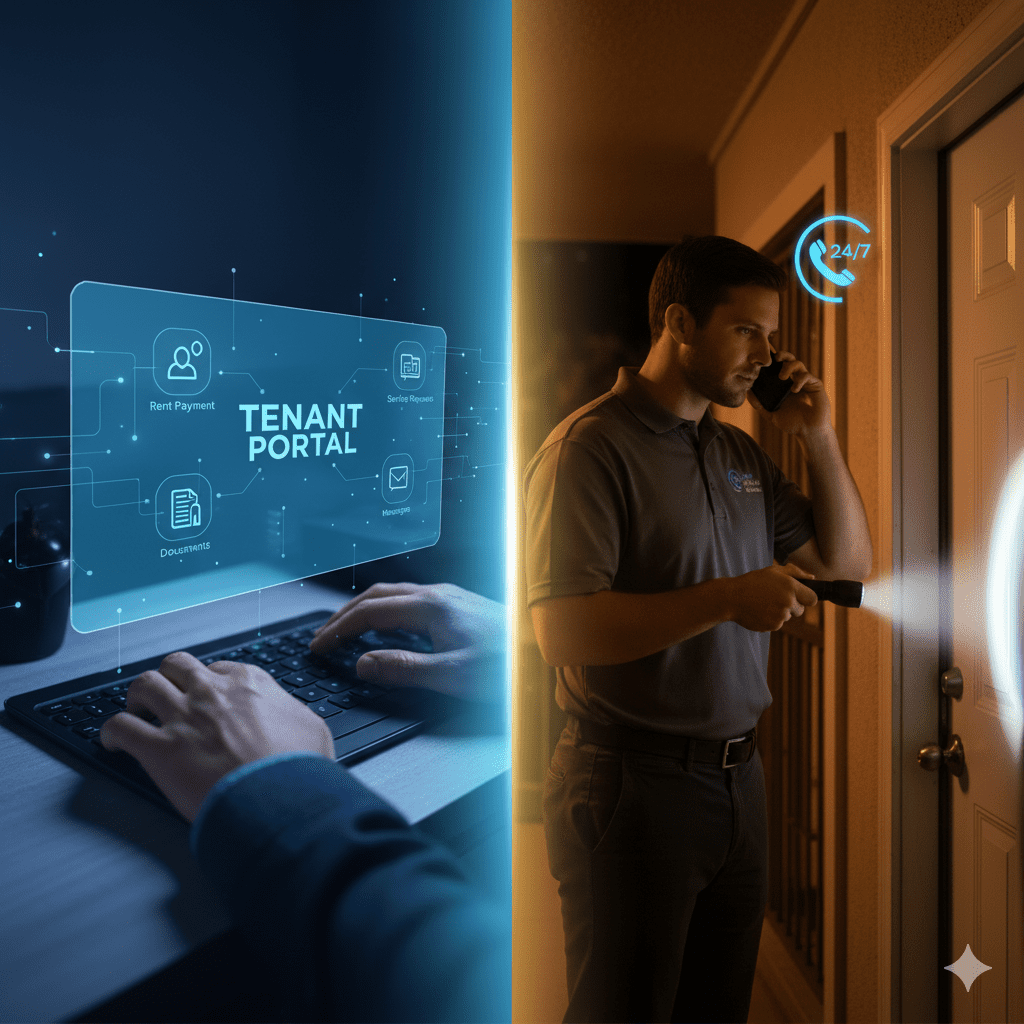
Both online portals and traditional on call systems play crucial roles in property management maintenance, but they excel in different situations. It’s not a matter of one being universally “more effective,” but rather which system is better suited to a particular need.
The most effective approach for modern property management is a strategic blend of both.
Online Portals: Enhancing Efficiency and Resident Satisfaction
Online tenant portals, particularly for maintenance, shine in streamlining routine requests and fostering a better overall resident experience. They are the go-to for issues that are not immediate emergencies and can benefit from a transparent, documented process.
Strengths of Online Portals
● Convenience and Accessibility: Residents can submit maintenance requests 24/7
from any device, eliminating delays caused by business hours or phone tag.
● Detailed Documentation: Tenants can provide specific details, including photos and
videos, which help maintenance staff diagnose problems before arriving.
● Transparency and Communication: Residents can track request status in real time,
while property managers can send updates directly through the system.
● Efficiency: Automated work order generation reduces administrative tasks and errors, freeing staff for higher-value responsibilities.
● Data Analysis: Portals collect valuable insights on trends and recurring issues, enabling proactive maintenance planning and better cost control.
Best for: Non-emergency issues like dripping faucets, faulty light switches, broken appliances that are still functional, or general upkeep requests.
On Call Systems: Providing a Critical Lifeline in Emergencies
While online portals handle routine tasks efficiently, the on-call system is indispensable for urgent situations that demand immediate human intervention. According to MAP
Communications, a rapid, human driven response during emergencies can make the difference between safety and disaster.
Strengths of On-Call Systems:
● Immediate Human Contact: In a crisis, tenants need to speak with a person, not fill out a form. On call staff provide real time reassurance.
● Rapid Response and Triage: Operators can quickly assess the severity of a situation
and dispatch the right services firefighters, police, or emergency maintenance
staff without delay.
● Crisis Management: On call staff guide tenants through damage control steps, such as shutting off water valves, until professionals arrive.
● Safety and Liability: Timely emergency response ensures resident safety, preserves
property integrity, and shields property managers from liability risks.
Best for: Emergencies such as burst pipes causing flooding, fire hazards, lack of heat in freezing temperatures, or security breaches.
A Symbiotic Relationship: The Most Effective Approach neither system alone can deliver the most effective property management strategy. Online portals excel at managing high volumes of routine requests with transparency and efficiency, while on call systems ensure urgent, high stakes situations are handled with speed and human care.
According to AppFolio, having a digital system for maintenance centralizes operations and accelerates task completion. At the same time, an on call system ensures emergencies are addressed promptly, preventing further damage and enhancing tenant trust.
By leveraging the strengths of both, property managers can achieve:
● Streamlined operations
● Greater resident satisfaction
● Enhanced safety and peace of mind
This balanced approach is the most effective way to navigate the complexities of property maintenance in the modern era.
